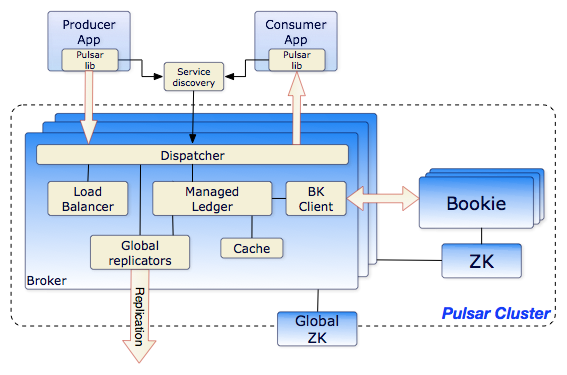
Yahoo announced that its highly scalable, low latency pub-sub messaging system is now open-source. The system provides pub-sub messaging semantics and is what Yahoo uses to provide messaging as a hosted service.
Developers that use Pulsar can set up a centrally managed cluster to provide pub-sub messaging as a service. Since the system is horizontally scalable, storage capacity can be expanded by adding additional servers to the pool.
Pulsar has a set of APIs that manage the service, like account-management activities that provision users, allocate capacity, and monitor the service as a whole. Pulsar also provides security by a pluggable authentication scheme.
Yahoo is currently working on improvements for Pulsar, including migrating topics between brokers in under a second, and it wants to provide additional language bindings for Pulsar. Developers can check out Pulsar on GitHub here.
SourceClear supports Vulnerable Method detection for Java, Python
SourceClear now supports Vulnerable Method detection for both Java and Python projects. It will also begin notifying developers of the vulnerable libraries they are using and will point out exactly where the vulnerable code is being used.
SourceClear analyzes bytecode to support Vulnerable Methods in Java, which gives it types and static name resolution. All of this information allows SourceClear to build an accurate call graph for Java, but with Python, things are more difficult, according to a blog post by Paul Ambrosini and Darius Foo, part of the product team at SourceClear.
Python packages are distributed on PyPl in source-code form, which means SourceClear needs to “get creative to compute or infer types in order to resolve their names,” wrote Ambrosini and Foo.
Once a developer installs or upgrades the latest agent, they can scan an example repository to see the Vulnerable Method Detection for Python in action. The Vulnerable Methods feature for Python and Java is available to all SourceClear Pro customers, and developers can start a free trial today as well.
Announcing BES Cloud by Huawei
At the Huawei Connect 2016 conference this week, Huawei announced its BES Cloud solution. The cloud will leverage global cloud infrastructure as well as scalable software features.
The BES Cloud includes the BSS Lite Cloud and Commerce Cloud. The Commerce Cloud can be integrated into on-premise systems, and it contains a cloud-based multi-tenant architecture that employs metadata-driven modeling and auto-scaling, according to Huawei.
The solution supports IT and business agility with integrated feature sets that shorten the time to market. Also, according to Huawei, it can be deployed and go live in three months.






